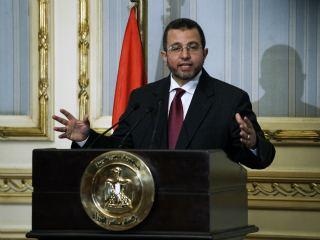Libya’s National Electoral Commission said on Wednesday that it proposed to postpone the first round of parliamentary and presidential elections to 24 January 2022.
The commission said earlier that it will be impossible to hold presidential elections next Friday, adding that the Parliament Speaker must set a new political roadmap.
Hadi al-Saghir, the head of the commission, announced that the elections could not be held on time on 24 December.
”After reviewing the technical, judicial, and security reports, we inform you of the impossibility of holding the elections by the date set by the electoral law, on 24 December,” Al-Saghir said in a letter to Parliament Speaker Aguila Saleh.
He called on the members of the House of Representatives to resume its duties and set a new roadmap. The letter also stipulated that “the mandate of the interim government will end on 24 December.”
In addition, UN Envoy to Libya Stephanie Williams said that she met with members of the Libyan Political Dialogue Forum and held a frank discussion on the electoral process and the implementation of the forum’s roadmap.
Meanwhile, the United Nations Support Mission in Libya (UNSMIL) expressed concern about the violence in the capital Tripoli.
The UNSMIL called on all Libyan parties to exercise restraint at this delicate stage.
The mission said the violence in Tripoli was undermining security gains made in the country.
In the same context, US Special Envoy and US Ambassador to Libya Richard Norland on Wednesday called on “Libyan leaders, on behalf of the Libyan people, to urgently address all legal and political obstacles to holding elections, including finalizing candidate lists for presidential elections.”
“The United States shares the concern and disappointment of the vast majority of Libyans who are waiting to have the opportunity to vote for the future of their country,” the U.S. envoy said in a press release.
“It is more important than ever for Libyans to be vigilant about the spread of misinformation that only benefits those who wish to disrupt Libya’s future progress,” Norland said.
“Now is not the time for unilateral actions or armed deployments that risk escalation and unintended consequences that harm the security and safety of Libyans,” Norland said in a statement on Wednesday.
The US envoy reiterated “the call of the UNSMIL to resolve differences that arise on political or military issues without resorting to violence.”

